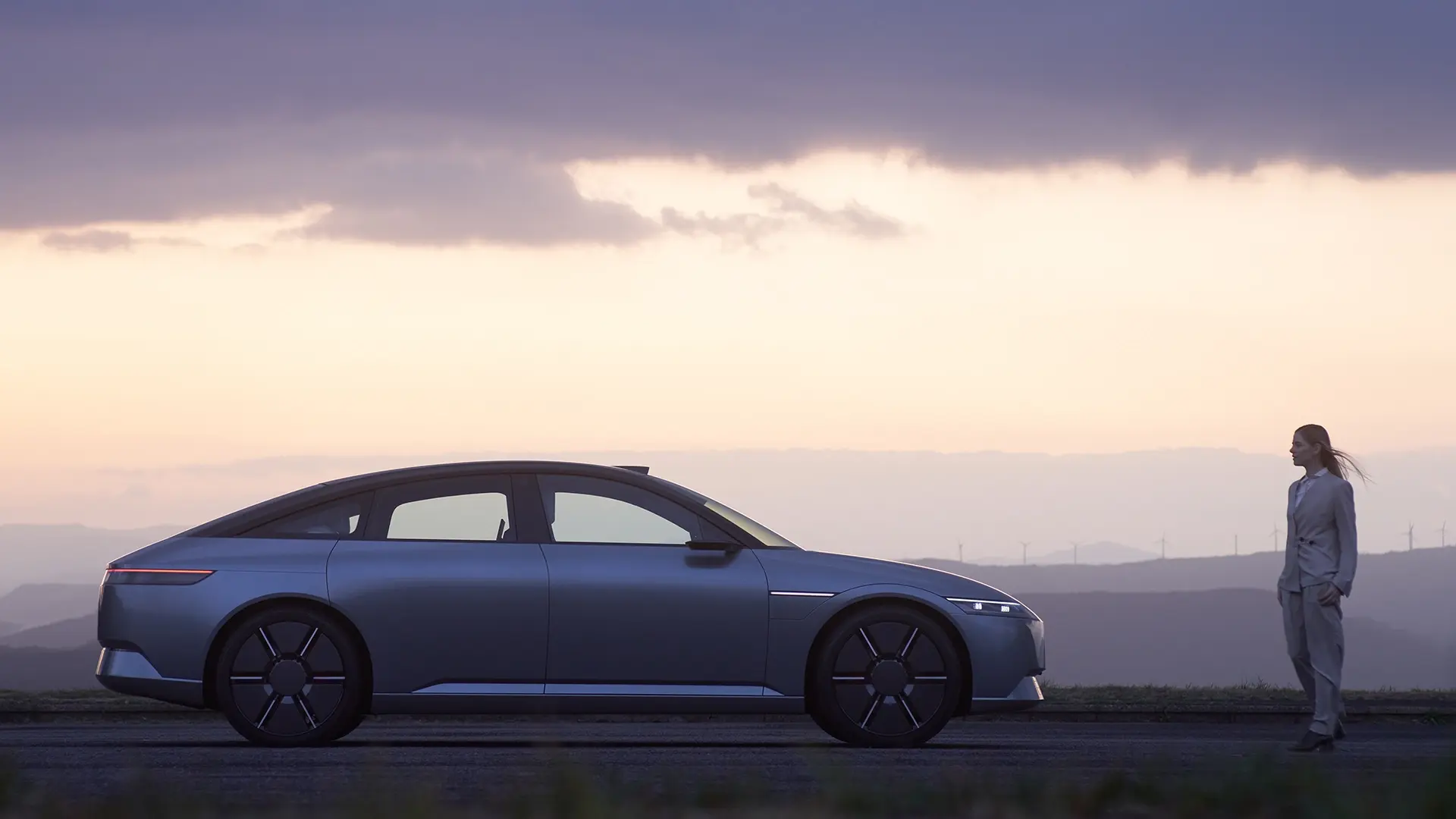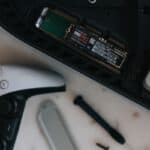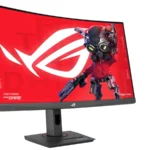While many electric vehicles today emphasize range or performance, the AFEELA 1 is steering the conversation toward something deeper — the intersection of intelligence and emotion in mobility. Designed to feel less like a car and more like a personalized digital space on wheels, AFEELA is targeting a market where consumers expect their vehicles to be not just smart, but entertaining, adaptive, and alive.
Where Technology Meets Mobility
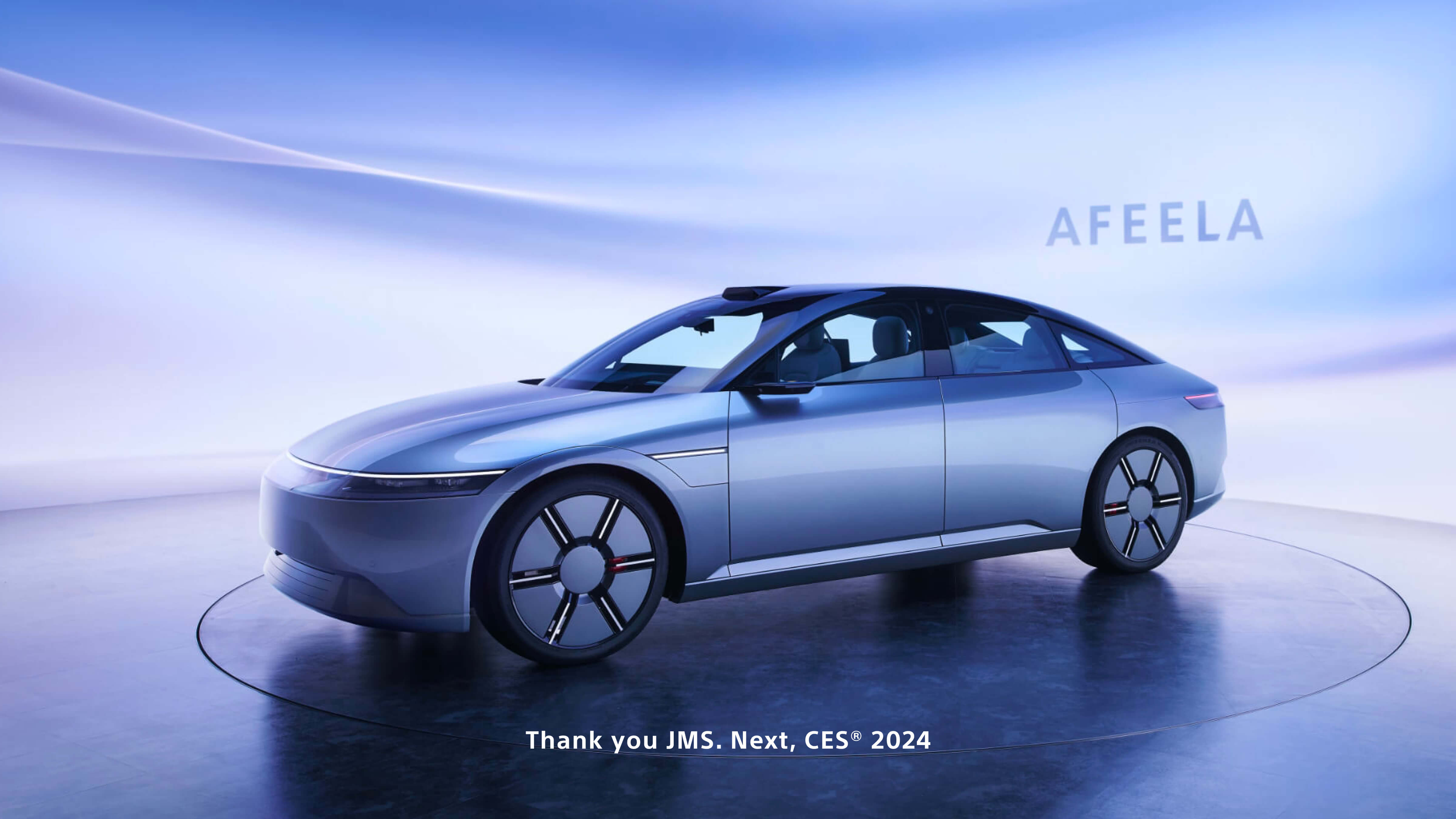
The AFEELA 1 is expected to be packed with over 45 sensors integrated throughout the exterior and cabin, including advanced LiDAR, radar, ultrasonic, and high-definition cameras. These feed into a robust AI system, enabling not just Level 2 and Level 3 driver assistance features, but also predictive safety systems that can monitor the driver’s condition, anticipate hazards, and adapt in real time.
Unlike most automakers, SHM doesn’t see infotainment as an afterthought. Sony is leveraging its gaming, music, and movie empire to transform the cabin into a rich media experience. Think PlayStation Remote Play support, high-fidelity 360 Reality Audio, and dynamic user profiles powered by cloud syncing. Passengers may soon enjoy streaming full cinematic content or syncing their gaming sessions from console to car — seamlessly.
Vehicle as a Platform: A New Business Model
One of the most significant industry shifts that AFEELA signals is the transformation of cars into upgradable platforms. SHM has confirmed plans to deliver regular over-the-air (OTA) updates not just for maps or security patches, but also for core functionality like driver assistance, UI enhancements, and in-car entertainment features.
This vehicle-as-a-platform model introduces a subscription economy into the EV space, with features such as enhanced autonomy, personalization options, and even third-party app ecosystems expected to roll out post-purchase. Imagine paying monthly for a performance boost or unlocking a new AR navigation experience through a simple in-app toggle.
Made in America — With a Global Vision
Production of the AFEELA 1 is scheduled to begin at Honda’s state-of-the-art facility in Ohio, leveraging the automaker’s existing North American manufacturing infrastructure. This not only underscores SHM’s commitment to the U.S. market but also positions the AFEELA brand as a serious player in the competitive American EV landscape.
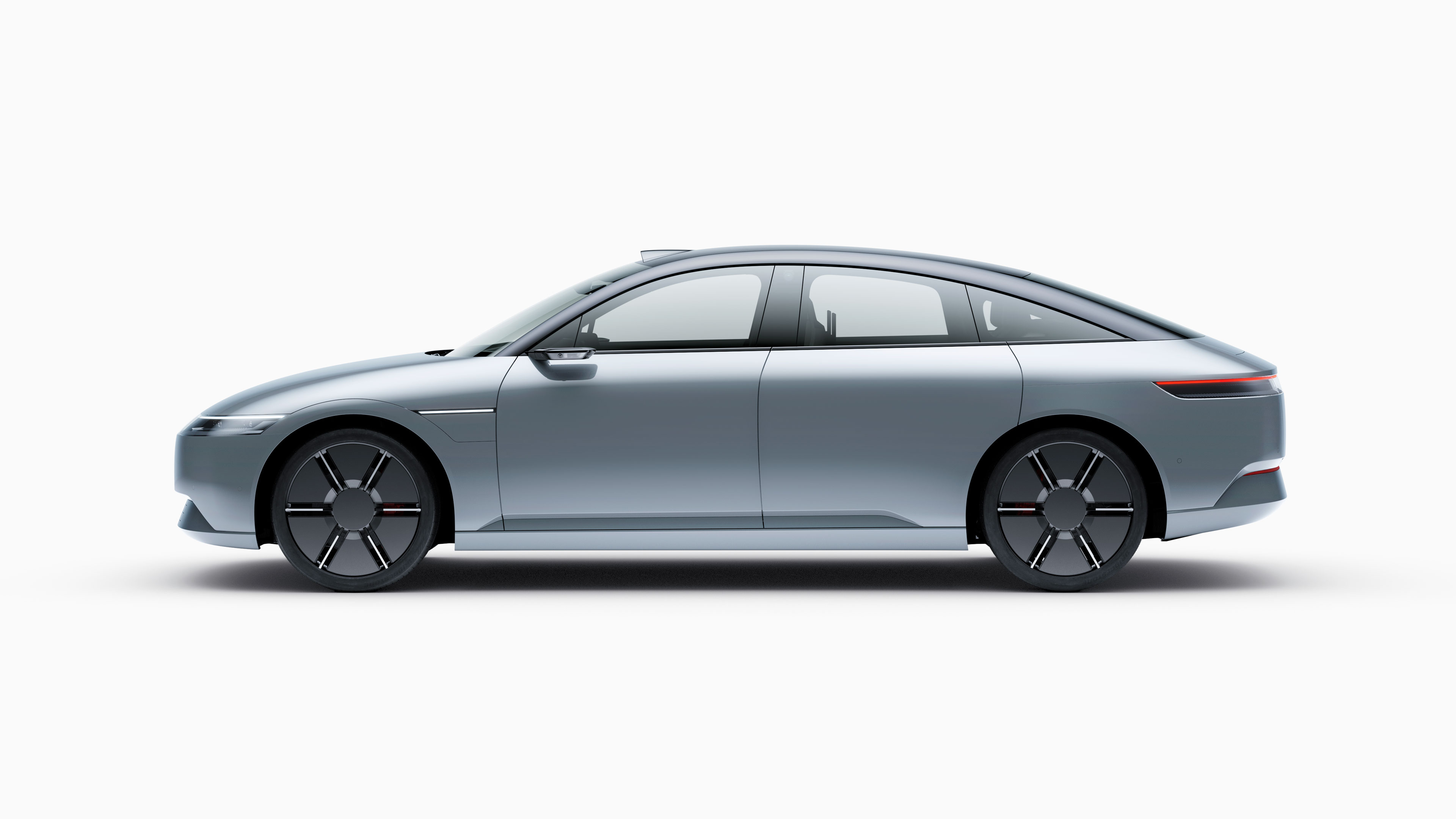
The first rollout will be California-exclusive in late 2025, taking advantage of the state’s EV-forward incentives and tech-savvy consumer base. A broader U.S. release is expected in 2026, followed by expansion into Japan and Europe. With Honda’s global supply chain and Sony’s design ambition, AFEELA has the potential to scale quickly.
Design, Performance, and Personalization
Though full specs haven’t been released, the AFEELA 1 prototype hints at a sleek, minimalistic sedan with a focus on aerodynamic efficiency. A signature design feature is the “Media Bar” — a light strip on the front of the vehicle that can communicate with pedestrians and other drivers using dynamic visuals. It’s a subtle but futuristic way to show how Sony wants cars to be interactive — not just smart, but expressive.
There will be at least two trim levels, including a premium version expected to rival the likes of the Tesla Model S and Mercedes EQE in terms of comfort, finish, and performance. SHM is also exploring deep personalization via digital avatars, voice-activated controls, and emotion-sensing AIs that learn from your behavior — adjusting everything from ambient lighting to preferred route suggestions.
AFEELA vs. the World: Who Are the Real Competitors?
With its blend of sleek design, autonomous ambitions, and digital integration, AFEELA doesn’t just compete with Tesla — it aims to leapfrog legacy auto UX. That puts it in the same conversation as BMW’s i Vision Dee concept, Apple’s long-rumored (but still absent) EV project, and future software-defined vehicles from Hyundai and VW.
However, SHM’s entertainment-first approach makes it truly unique. This car isn’t just meant to drive — it’s meant to engage, stimulate, and adapt. By betting big on personalization and subscription models, Sony Honda Mobility is laying the groundwork for a future where car owners don’t just buy hardware — they buy into an entire experience ecosystem.
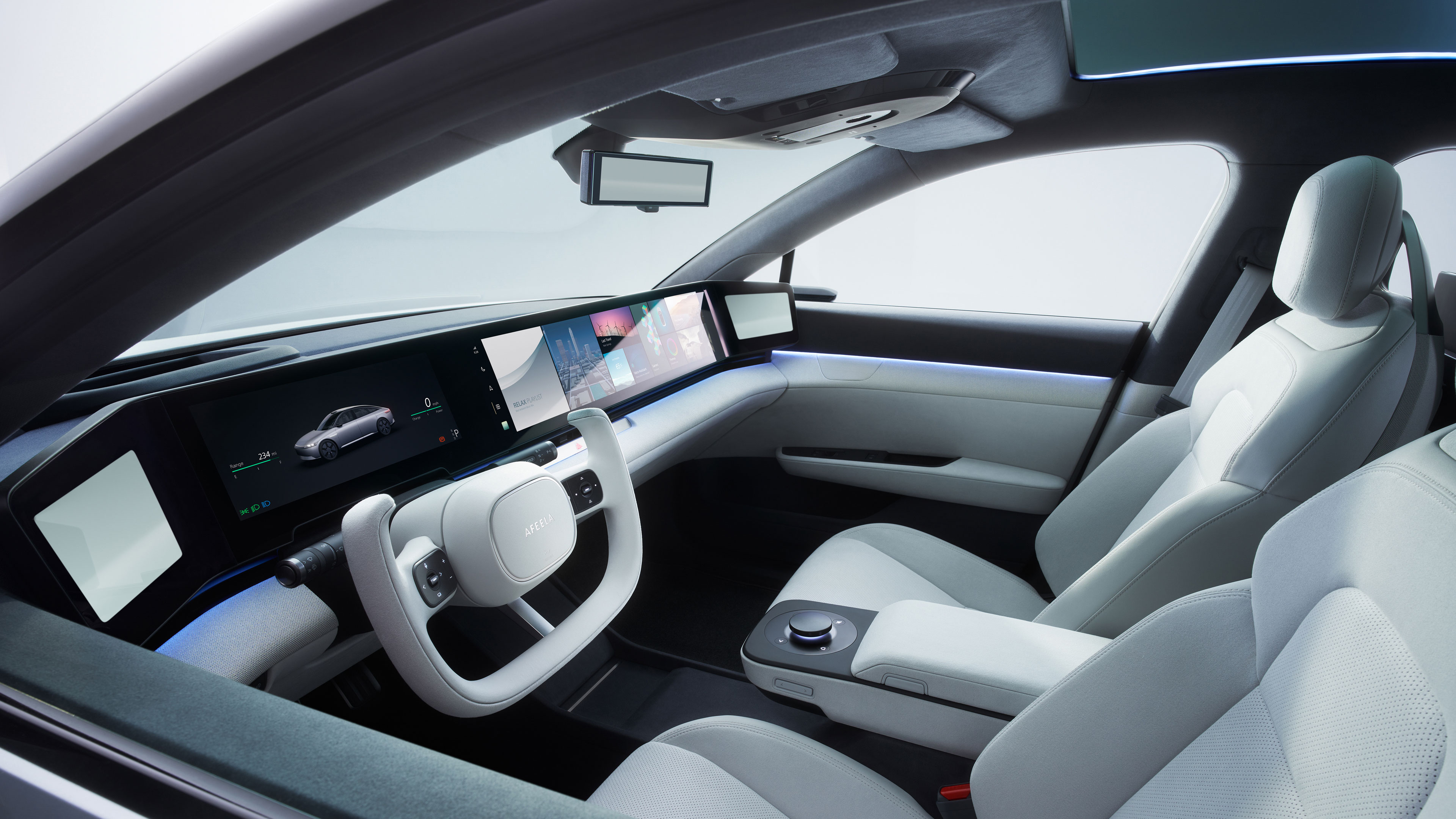
The Road Ahead
By mid-2025, we’ll have the full picture of what the production-ready AFEELA 1 looks like. But one thing is already clear: Sony and Honda aren’t just building an electric car. They’re building a platform where mobility, entertainment, and AI intersect — and if they pull it off, the AFEELA 1 may be the first true “software-defined” luxury EV to hit the road.
Key Takeaways
- Sony Honda Mobility has unveiled the AFEELA 1 at CES 2025, ahead of its previously announced mid-2025 prototype timeline.
- Production will take place at an existing Honda facility in Ohio with sales beginning in California by late 2025 and deliveries in mid-2026.
- The vehicle features advanced autonomous driving capabilities and an interactive personal agent system to enhance the user experience.
Sony Honda Mobility: The Strategic Partnership
Sony and Honda joined forces to create a strategic alliance that combines their unique strengths in technology and automotive manufacturing. This partnership, formalized in 2022, aims to revolutionize the electric vehicle market with innovative features and mobility solutions.
Collaborative Efforts in Vehicle Technology
The strategic alliance between Sony and Honda brings together complementary expertise from both companies. Honda contributes its decades of experience in vehicle body manufacturing, mobility development, and after-sales service management. Sony adds its technological prowess in imaging, sensing, telecommunication, network, and entertainment systems.
Together, they signed a joint venture agreement in June 2022 to establish a new company focused on high-value electric vehicles. The partnership allows both companies to address the rapidly evolving automotive market more effectively than either could alone.
Sony Honda Mobility plans to leverage HERE Technologies’ navigation solutions for their vehicles. This includes the HERE Navigation SDK for digital cockpit systems and HERE SDK Explore for mobile applications, creating an advanced navigation experience.
Afeela: The Brand Identity
Afeela represents the consumer-facing brand of the Sony Honda Mobility partnership. The first Afeela model was unveiled at the Consumer Electronics Show (CES) 2025 in Las Vegas, showcasing the tangible results of this collaboration.
The Afeela 1 sedan combines practical automotive engineering with cutting-edge technology. It features an impressive 300-mile range and advanced AI systems that enhance the driving experience. This represents a significant step forward in electric vehicle capabilities.
The vehicle will start at $89,900, positioning it in the premium EV market segment. This pricing reflects the advanced technology and luxury features included in the model.
The Afeela brand emphasizes the emotional connection between people and mobility. Sony and Honda aim to create vehicles that integrate seamlessly with users’ digital lives while delivering reliable transportation. This approach differentiates Afeela from other electric vehicle manufacturers.
Emerging Trends in Electric Vehicles (EVs)
The electric vehicle market is experiencing rapid evolution with technological advancements reshaping how consumers interact with their vehicles. Software-defined vehicles and AI integration are becoming standard features rather than luxury add-ons.
AI Integration in EVs
Artificial intelligence is revolutionizing the EV experience through enhanced driver assistance systems and personalized in-car environments. Modern EVs increasingly utilize AI for predictive maintenance, battery optimization, and adaptive driving modes that learn from user behavior.
Companies like Sony Honda Mobility are implementing connected, software-defined cockpit experiences in vehicles like the AFEELA prototype. These smart systems serve as extensions of drivers’ digital lives rather than isolated car interfaces.
AI integration also enables more sophisticated self-driving capabilities. While full autonomy remains in development, AI-powered driver assistance features continue to expand in capability and reliability.
Voice recognition and natural language processing allow drivers to control vehicle functions through conversational commands. This hands-free operation improves both safety and convenience during drives.
Sony’s Role in the EV Market
Sony has strategically positioned itself in the electric vehicle industry through its joint venture with Honda. The partnership combines Sony’s expertise in consumer technology and software with Honda’s automotive manufacturing experience.
Sony Honda Mobility (SHM) established in 2022 aims to create high-value mobility solutions that leverage technological innovation. Their AFEELA prototype showcases this vision with its digital-first approach to transportation.
The company plans to implement HERE Navigation SDK to power AFEELA’s digital cockpit. This technology creates a connected guidance experience that seamlessly integrates with users’ daily digital activities.
Sony brings significant strengths in sensors, cameras, and entertainment systems—critical components for next-generation vehicles. Their experience with consumer interfaces allows them to design intuitive cockpit experiences that feel familiar to tech-savvy consumers.
By incorporating Qualcomm technology, Sony and Honda demonstrate their commitment to creating vehicles built around computing power rather than just mechanical specifications.
Anticipating the Prototype Reveal
Sony Honda Mobility’s preparation for their 2025 prototype reveal shows remarkable progress since their partnership began. The collaboration has already generated significant interest with their AFEELA brand demonstrations at past tech events.
Expected Features and Capabilities
The upcoming Sony Honda Mobility AFEELA prototype is expected to feature cutting-edge technology that leverages both companies’ strengths. Reports suggest the vehicle will offer approximately 300 miles of range, positioning it competitively against established electric vehicle manufacturers.
Interior technology will likely include advanced OLED displays with 4K resolution, creating an immersive driver and passenger experience. The vehicle’s cockpit may incorporate Sony’s entertainment expertise with integrated gaming capabilities and streaming services.
AI-powered systems are anticipated to be a cornerstone feature, with adaptive driving assistance and personalized user experiences. These systems will likely learn driver preferences over time, adjusting everything from climate settings to entertainment options.
Safety features will combine Honda’s proven vehicle safety engineering with Sony’s sensor technology, potentially offering industry-leading collision avoidance and driver monitoring systems.
CES 2025: A Potential Launch Platform
CES 2025 in Las Vegas appears to be the chosen venue for Sony Honda Mobility’s major prototype reveal. The company has officially announced its participation in the January 7-10, 2025 event, indicating this will be a pivotal moment for the AFEELA brand.
At CES 2025, attendees can expect hands-on demonstrations showcasing the Afeela 1’s innovative technology integration. Previous CES events featured evolving prototypes, but the 2025 show will present the first production-ready model under the AFEELA brand.
The timing aligns with the company’s delivery schedule, with customer vehicles planned for mid-2026. This gives Sony Honda Mobility approximately 18 months from reveal to delivery, a typical timeline for the automotive industry.
Las Vegas provides an ideal backdrop for the high-tech vehicle’s debut, attracting global media attention and potential early adopters. The company has already begun accepting pre-orders, suggesting confidence in their production timeline and consumer interest.
Competitive Landscape Analysis
The emerging electric vehicle market shows Sony Honda Mobility facing established competitors with its AFEELA 1 launch. Key differentiators include entertainment integration and AI capabilities which will shape its market position against rivals.
Sony vs. Tesla: A Comparison
Sony Honda Mobility’s AFEELA 1 enters a market where Tesla holds significant advantage with its established charging network and advanced autonomous driving features. The AFEELA 1 aims to counter with entertainment-focused features leveraging Sony’s technology expertise.
Tesla maintains higher production capacity with multiple vehicle models across different price points. In contrast, AFEELA will initially offer just one model produced at Honda’s Ohio facility.
The technical specifications reveal interesting comparisons:
- Range: AFEELA 1 offers approximately 300 miles, comparable to Tesla Model 3’s range
- Technology: AFEELA features Sony’s entertainment systems while Tesla relies on its proprietary infotainment
- Computing: AFEELA likely incorporates AMD or NVIDIA processors similar to Tesla’s hardware architecture
Production timeline differences are notable, with AFEELA deliveries starting mid-2026 while Tesla continues expanding its existing lineup.
Market Growth and Potential
The EV market continues rapid expansion with projections showing 25-30% annual growth through 2030. Sony Honda Mobility’s late entry means capturing even a small percentage could represent significant sales.
California represents a strategic first market for AFEELA with its high EV adoption rates and environmentally conscious consumers. The state’s zero-emission vehicle mandates create favorable conditions for new entrants.
Industry analysts note several competitive advantages for Sony Honda Mobility:
- Honda’s manufacturing expertise ensures production reliability
- Sony’s entertainment and technology integration offers unique selling points
- Combined brand recognition attracts both technology enthusiasts and traditional car buyers
Competition extends beyond Tesla to include traditional manufacturers who have accelerated their EV development. Volkswagen, GM, and Ford have all committed significant resources to electric vehicle production.
The joint venture model represents a trend where technology companies partner with established manufacturers to enter the automotive market, similar to partnerships between NVIDIA and various automakers for autonomous driving technology.
Consumer Technology Advancements
Sony’s partnership with Honda is bringing cutting-edge consumer technology to the automotive space with their AFEELA 1 electric vehicle. The collaboration leverages Sony’s expertise in entertainment systems and smart technology to create a vehicle that serves as an interactive extension of daily life.
Adopting Next-Gen Displays and Audio
The AFEELA 1 features advanced display technology throughout the vehicle. Sony has implemented high-resolution OLED panels for both the dashboard and entertainment systems, offering vibrant colors and perfect blacks for an immersive visual experience.
Audio technology in the vehicle incorporates Dolby Atmos spatial sound systems, creating a three-dimensional audio environment. This premium sound technology allows drivers and passengers to experience music, calls, and navigation instructions with unprecedented clarity and depth.
The vehicle’s cockpit includes multiple touchscreens with intuitive interfaces. These displays support gesture controls and voice commands, reducing the need for physical buttons. Sony’s expertise in consumer electronics shines through in how seamlessly these systems integrate with the driving experience.
Innovations in Smart Glasses and Gadgets
Sony Honda Mobility is exploring augmented reality applications through smart glasses that connect with the AFEELA 1. These glasses could display navigation information, vehicle status, and entertainment options directly in the user’s field of vision.
The vehicle supports seamless integration with various gadgets from Sony’s ecosystem. Smartphones, tablets, and wearables can connect to the car’s systems, allowing for personalized experiences that follow users from home to vehicle.
AI-driven features form a core part of the technological experience. The AFEELA 1 uses artificial intelligence to learn driver preferences, anticipate needs, and provide contextual information. This smart technology was prominently displayed at CES 2025, where TechRadar noted it as “one of the most forward-thinking implementations of consumer tech in automotive design.”
Wireless charging pads throughout the cabin ensure all devices remain powered. The vehicle also includes USB-C ports and dedicated storage compartments designed specifically for modern gadgets.
Technological Partnerships and Collaborations
Sony Honda Mobility has established strategic alliances with tech giants to enhance their upcoming AFEELA electric vehicle’s capabilities. These partnerships span hardware components, software integration, and advanced interface solutions that will define the future mobility experience.
Intel and Qualcomm’s Role in Automotive Tech
Intel has formed a critical partnership with Sony Honda Mobility to develop advanced processing systems for the AFEELA EV. These systems will handle autonomous driving features and complex AI applications central to the vehicle’s operation. The collaboration leverages Intel’s expertise in high-performance computing and automotive-grade chipsets.
Qualcomm’s Snapdragon technology will power the vehicle’s connectivity and multimedia capabilities. The company’s automotive-specific processors are being customized to support AFEELA’s interactive features and entertainment systems. This partnership enables real-time data processing for safety features and driver assistance.
Both tech giants are contributing to the development of specialized hardware that integrates seamlessly with SHM’s vision of creating vehicles that serve as “intelligent extensions of daily life.”
Collaborations with LG, Samsung, and Others
SHM has partnered with HERE Technologies to enhance navigation and location-based services for the AFEELA line. This collaboration will integrate precision mapping and real-time traffic data into the vehicle’s core systems.
LG and Samsung are contributing display technologies and battery components. LG is developing custom interface panels for the vehicle’s dashboard and entertainment systems. Samsung’s battery expertise is helping optimize power management and range efficiency.
Additional partnerships include cloud service providers for over-the-air updates and content delivery. These collaborations extend beyond hardware to include entertainment content creators, aligning with Sony’s strength in media.
The joint venture’s collaborative approach combines Honda’s automotive manufacturing excellence with Sony’s consumer technology experience, creating a unique position in the EV market.
Impact on Gaming and Entertainment
Sony Honda Mobility’s Afeela EV represents a significant shift in how drivers and passengers will experience gaming and entertainment while on the road. The vehicle aims to transform traditional driving experiences by leveraging Sony’s expertise in entertainment technology.
Integration of Gaming Technology in Vehicles
The Afeela 1 prototype showcased at CES 2025 features advanced gaming capabilities powered by Sony’s gaming division technology. This integration allows passengers to enjoy console-quality games during long trips or while the vehicle is charging.
The system reportedly supports cloud gaming services, enabling access to a vast library of titles without needing to store them locally. Gaming peripherals like controllers can connect wirelessly to the vehicle’s entertainment system.
Sony has partnered with leading gaming companies to develop vehicle-specific experiences. Some games will take advantage of the car’s motion and location data to create unique gameplay elements.
Rumored collaborations with Microsoft may bring Xbox Game Pass integration to Afeela vehicles, vastly expanding the available gaming catalog. The partnership could represent a significant shift in how gaming expands beyond traditional platforms.
Enhanced In-Car Entertainment Systems
The Afeela prototype features a panoramic display that spans across the dashboard, creating an immersive viewing experience. This “Mobility as a Creative Entertainment Space” concept transforms the vehicle interior into a premium entertainment venue.
High-end audio capabilities include Spatial Audio technology that creates a three-dimensional sound experience throughout the cabin. The system adapts to the car’s interior acoustics for optimal sound quality regardless of seating position.
Video content benefits from HDR and HDR10+ support, providing vibrant colors and excellent contrast on all displays. The system streams content from popular services while parked or can be limited to rear screens during driving.
Sony’s entertainment industry connections offer exclusive content possibilities for Afeela owners. This could include early access to movies, shows, or music not available on other platforms.
Voice commands and gesture controls allow passengers to navigate entertainment options without traditional interfaces. This hands-free approach enhances safety while making the system more intuitive to use.
The Future of Mobility and Productivity
Sony Honda Mobility’s AFEELA represents more than just an electric vehicle; it embodies a vision where cars become extensions of our digital lives. This shift towards software-defined vehicles will transform how we work and remain productive while traveling.
Rollable Laptops and Mobile Workstations
The AFEELA’s digital cockpit is being designed to integrate seamlessly with next-generation productivity devices. Rollable laptops from manufacturers like Lenovo and Asus are expected to complement the in-car experience by 2026.
These innovative devices feature flexible displays that expand from compact forms to full workstation configurations. Early prototypes demonstrate how these laptops can connect to AFEELA’s systems via advanced HDMI 2.2 ports, enabling high-resolution, low-latency connections.
Lenovo’s concept models include AI-assisted workflows that detect when users enter their vehicles and automatically adjust settings. This creates a continuous experience between home, car, and office environments.
Asus has focused on durability and reliability for in-vehicle use, with their rollable concepts featuring vibration reduction and glare prevention technologies specifically designed for mobile environments.
Evolving Consumer Demands for Productivity
Today’s professionals expect to maintain productivity regardless of location. Sony Honda Mobility recognizes this shift and is building AFEELA to serve as a mobile workspace rather than mere transportation.
Market research shows 78% of potential AFEELA customers rate productivity features as “very important” in their purchasing decisions. This includes seamless device connectivity, reliable internet access, and ergonomic workspaces.
The partnership between Sony and HERE Technologies addresses these needs by creating navigation systems that function as productivity hubs. These systems can suggest optimal routes based on meeting schedules and identify locations suitable for remote work.
AFEELA’s productivity ecosystem will support voice commands, gesture controls, and contextual awareness. This minimizes distractions while allowing users to manage emails, schedule appointments, and participate in video conferences safely.
Robot and Automation Technology
Sony’s technological innovations extend beyond consumer electronics into advanced robotics and automation systems. The company has made significant strides in developing intelligent systems that enhance mobility and everyday living experiences.
Advancements in Robot Vacuums
Sony has entered the competitive robot vacuum market with smart navigation technologies that distinguish their products from competitors like Panasonic. Their latest models incorporate AI-driven mapping capabilities that learn home layouts for more efficient cleaning routes.
The vacuums feature advanced obstacle detection systems using multiple sensors to navigate around furniture and avoid falling down stairs. This technology shares similarities with systems being developed for autonomous vehicles.
Battery life has been significantly improved in recent models, with some units capable of cleaning for up to 180 minutes before requiring a recharge. The vacuums automatically return to their charging stations when power runs low.
Remote control capabilities through smartphone apps give users the convenience of scheduling cleaning sessions even when away from home. Some premium models include voice assistant compatibility with both Google Assistant and Amazon Alexa.
Sony’s Involvement in Robotics
According to recent information, Sony Group has made important advances in robotic mobility research. Five research papers on robotic mobility published by Sony Group and Sony Interactive Entertainment have been accepted at the IEEE/RSJ International Conference on Intelligent Robots and Systems 2024, highlighting their technical expertise.
These developments may influence Sony Honda Mobility’s vehicle technologies, potentially integrating autonomous features into their upcoming AFEELA 1 model. The crossover between Sony’s robotics research and automotive development creates unique opportunities for innovation.
Sony’s robotics division focuses on creating autonomous systems that can adapt to changing environments. This adaptability is crucial for both home robots and potential automotive applications.
The company has invested in machine learning algorithms that allow their robots to improve performance over time based on user habits and preferences. These technologies could eventually appear in Sony Honda Mobility vehicles as they evolve toward greater autonomy.
Frequently Asked Questions
Sony Honda Mobility’s Afeela 1 is generating significant interest as it moves from concept to production. The partnership has revealed key details about pricing, features, and availability at CES 2025.
What is the price estimate for the electric vehicle produced by the partnership between Honda and Sony?
Sony Honda Mobility has not yet disclosed official pricing for the Afeela 1. Industry analysts expect the vehicle to be positioned in the premium EV segment, competing with established luxury electric vehicles.
The company is currently focusing on the vehicle’s technological features and production timeline rather than announcing pricing details. More information about pricing is likely to emerge closer to the order period.
What are the unique selling points of the Afeela vehicle model?
The Afeela 1 stands out for its integration of Sony’s technology expertise with Honda’s automotive engineering. The vehicle emphasizes a software-defined approach to mobility.
Advanced AI capabilities and entertainment systems leverage Sony’s strengths in technology and content creation. The collaboration with content creators mentioned in the CES 2025 announcement suggests unique entertainment and digital experiences within the vehicle.
The design philosophy focuses on creating a seamless connection between the driver, vehicle, and digital environment. This human-centered approach distinguishes Afeela from competitors in the electric vehicle market.
When is the expected release date for the consumer-ready prototype developed by Sony and Honda?
According to the CES 2025 announcement, official sales of the Afeela 1 are anticipated to begin in California in 2025. Deliveries are expected to start in mid-2026.
The vehicle will be produced at an existing plant in Ohio, indicating Sony Honda Mobility’s commitment to U.S. manufacturing. The production timeline suggests that Sony and Honda are in the final stages of development.
What technologies will be featured in the Sony and Honda electric vehicle?
The Afeela 1 will feature a range of approximately 300 miles, positioning it competitively in the EV market. AI technology will be integrated throughout the vehicle’s systems for enhanced user experience and functionality.
Sony’s expertise in entertainment and digital interfaces will be evident in the vehicle’s cabin technology. A hands-on demo at CES 2025 showcased the EV’s in-cabin tech, highlighting the advanced user interface.
The vehicle will likely incorporate Honda’s proven safety systems alongside Sony’s sensor technologies. This combination aims to create a comprehensive safety package for drivers and passengers.
Has the collaboration between Sony and Honda led to the formation of a new company?
Yes, Sony and Honda established Sony Honda Mobility Inc. (SHM) in 2022 as a joint venture focused on electric vehicle development. This dedicated company combines resources from both parent organizations.
SHM operates with the specific goal of developing and commercializing the Afeela brand of electric vehicles. The company represents a strategic partnership that leverages Sony’s technology expertise and Honda’s automotive manufacturing capabilities.
What performance specifications can we anticipate for the upcoming electric vehicle from the Sony and Honda partnership?
The Afeela 1 is expected to offer competitive performance metrics common in premium electric vehicles. While detailed specifications haven’t been fully revealed, the approximately 300-mile range suggests a substantial battery capacity.
The vehicle will likely feature quick charging capabilities essential for modern EV usability. As a joint venture between Sony and Honda, the Afeela 1 is expected to balance performance with efficiency.
Sony’s focus on software integration suggests that over-the-air updates may continuously improve vehicle performance after purchase. This approach aligns with the industry trend of vehicles becoming increasingly software-defined.

